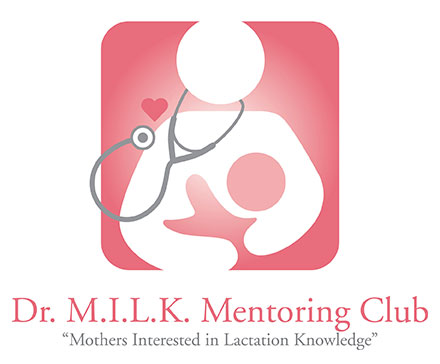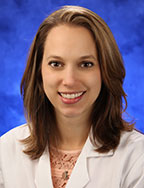Dr. MILK® Supports Physician Moms, Recognizes Unique Challenges to Breastfeeding in the Health Care Work Place
 The transition back to work can spell trouble for continued breastfeeding among physician moms.¹ In October 2014, Penn State Hershey Medical Center started one of only four United States’ chapters of Dr. MILK (Mothers Interested in Lactation Knowledge), a monthly support group for breastfeeding moms who are also physicians, mid-level providers, residents, or medical students.
The transition back to work can spell trouble for continued breastfeeding among physician moms.¹ In October 2014, Penn State Hershey Medical Center started one of only four United States’ chapters of Dr. MILK (Mothers Interested in Lactation Knowledge), a monthly support group for breastfeeding moms who are also physicians, mid-level providers, residents, or medical students.
Jointly led by two Penn State Hershey Obstetrics and Gynecology physicians, Nicole Hackman, M.D., and Sarah Louise Juza, M.D., the goal is to make breastfeeding a positive experience for these moms so they can promote it whole-heartedly with their own patients. Kerri Brackney, M.D., FACOG, who started and formerly led the program, points out, “There is very little formal medical education around breastfeeding. Most physicians know that breastfeeding is good for babies and moms. What they don’t realize is how physically and emotionally challenging breastfeeding can be. When physician moms choose to breastfeed, they have a unique opportunity to more effectively help their patients be successful too.”
Every month, the group of ten to twelve members discusses how to make breastfeeding work and how to talk with employers and supervisors about pumping. At each meeting, a pediatrician, OBGYN, and lactation consultant are available to answer questions and discuss concerns. To help maximize efficient use of members’ time, Brackney and Hackman have also created the opportunity for physician moms to earn CME credits by participating in the group; their time spent may be considered educational, if they choose.
Dr. MILK also offers online support via an active Facebook page within a closed group; currently there are more than 600 active online physician mom members from around the world. The relatively large online Dr. MILK community belies the unique challenges to breastfeeding faced by physician moms. As Brackney explains, “Physician moms often describe feeling embarrassed about not knowing how to do something they feel they should know as physicians and women. Because of this, they may not reach out for advice and help. Moreover, they are usually far from female family members and friends who could teach them how to breastfeed and provide support.” The twenty-four-hour availability of an online community of fellow physician moms is likely key to helping maintain breastfeeding, particularly when unexpected bumps in the road occur at inconvenient times. According to data on the Dr. MILK website, 47 percent of physician mom participants continue to breastfeed for twelve months.
Work place support is key to maintaining breastfeeding for working moms; requiring an appropriate place and adequate time for a breastfeeding mother to express milk. It can be tremendously challenging to balance the need to maintain milk supply against work hours and patient care. Depending on the mother’s medical specialty, work demands may be unpredictable. Work-related stress can also decrease milk supply. Most physician moms report successful initiation and maintenance of breastfeeding during maternity leave. Rates of breastfeeding drop dramatically, however, once these women return to work; the majority cite lack of time.¹ Physician moms who experience breastfeeding success and its benefits, however, are significantly more likely to be strong advocates and provide more effective breastfeeding advice to their patients.² Currently, there are four hospitals in the country with active Dr. MILK groups: in addition to Penn State Hershey, there are three in Arizona.
 Sarah Louise Juza, M.D.
Sarah Louise Juza, M.D.
Assistant Professor, Obstetrics and Gynecology
PHONE: 717-531-3503
EMAIL: sjuza@hmc.psu.edu
RESIDENCY: Obstetrics and Gynecology, Penn State Milton S. Hershey Medical Center, Hershey, Pennsylvania
MEDICAL SCHOOL: Medical College of Wisconsin, Milwaukee, Wisconsin
REFERENCES:
- Sattari M, Levine D, Neal D, et al. 2013. Personal breastfeeding behavior of physician mothers is associated with their clinical breastfeeding advocacy. Breastfeed Med. 8:31-7.
- Freed GL, Clark SJ, Sorenson J, et al. 1995. National assessment of physicians’ breast-feeding knowledge, attitudes, training, and experience. JAMA. 273:472-6.
